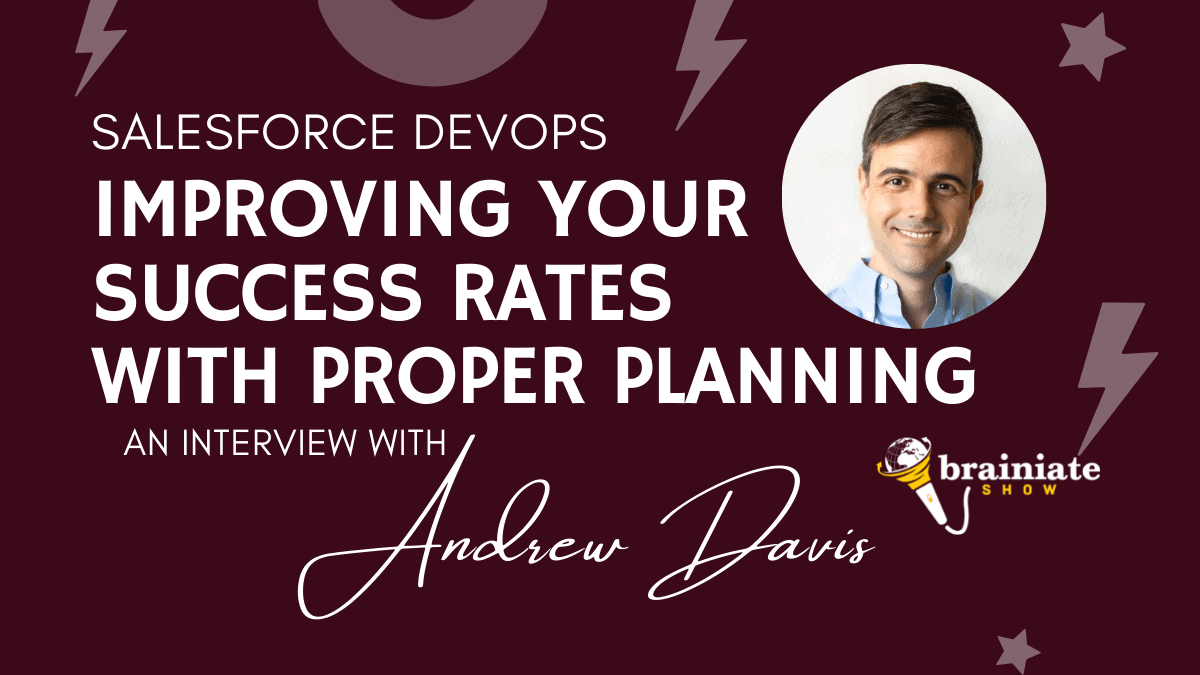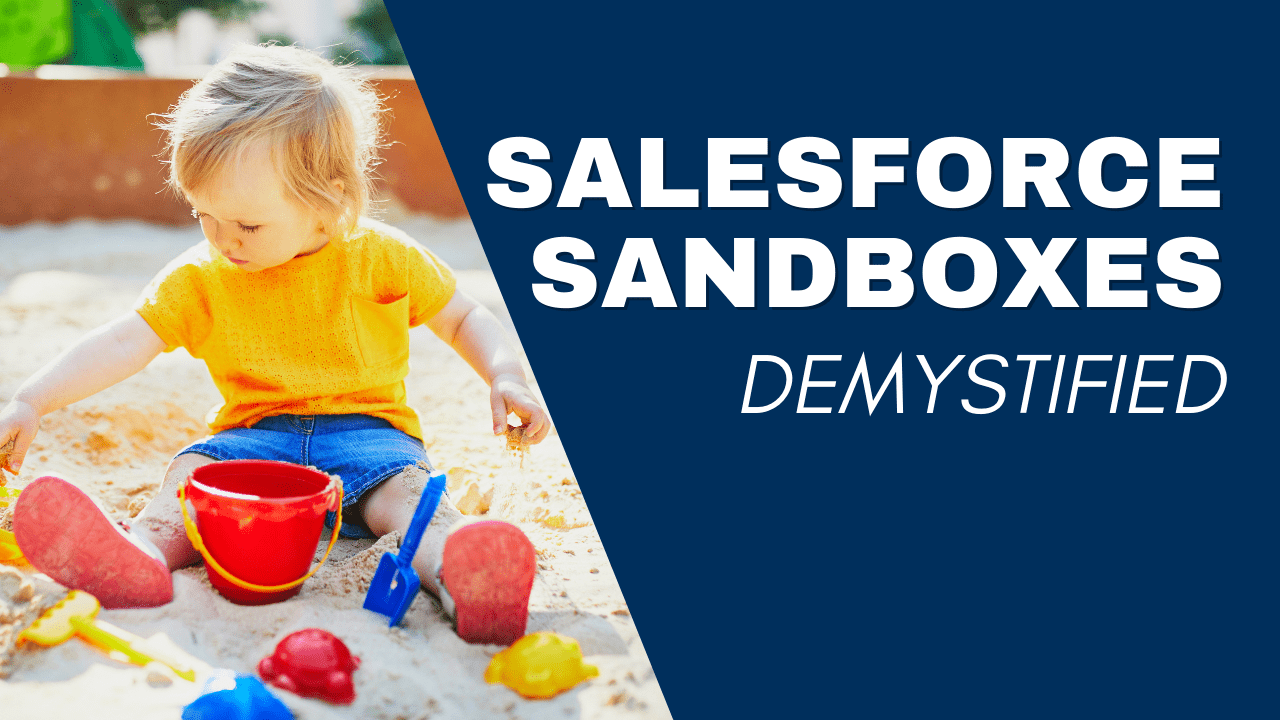The DevOps Mirage: Seeing Beyond the Tool-Driven Illusion in Salesforce

So, picture this: You’re deep into Salesforce DevOps, right? And this solution looks like your golden ticket, your way out of all the trouble.
But wait, what if it’s not?
What if it’s all a mirage, just a trick of the light in the vast tech desert?
It makes you think, doesn’t it?
Now, let’s flip this. Think about a solution you’ve put on a pedestal. What if, as you get closer, it just vanishes? It’s like chasing a rainbow only to find out there’s no pot of gold.
This is why we need to dive deep, my friends. We must question everything, turn it over, and look at it from all angles. When you get into the nitty-gritty of DevOps, you can level up your Salesforce game by seeing how all the pieces fit together. We’re talking about breaking the mold, setting new records, and pushing past what’s considered “normal”.
So, are you ready? Let’s get in there, let’s dig into the truth behind these easy, too-good-to-be-true solutions. It’s time to embark on this journey together.

Key Resources Mentioned in This Podcast:
- Andrew’s previous book: Mastering Salesforce DevOps
- Andrew’s upcoming book: Inside Out
- Learn about Copado‘s solutions for DevOps
- Follow Andrew on LinkedIn
Chasing Shadows in Salesforce DevOps

So here’s the deal: Some people think DevOps in Salesforce is just a set of tools. They think you can just set them up, and they’ll handle everything like magic.
But they’re wrong, and this misunderstanding is stopping many talented professionals from mastering their digital workspaces.
Let’s rewind a bit. There was a time when the Salesforce ecosystem was like the Wild West, with unchecked changes running rampant. It was like having cowboys who didn’t consider the consequences, shooting updates into production environments. The main reason for this chaos?
The lack of structured software development life cycles is essential for keeping things in order and pushing efficient innovation. Without these life cycles, controlling and managing the fast-paced changes and updates was nearly impossible, leading to a mess that was more of a roadblock than a catalyst for progress.
The DevOps Delusion and Its Grip on Salesforce

Sometimes, we think technology can do everything for us, right? We think if we have the right tools, they’ll handle everything like magic, and we can sit back and relax. But let’s get real here—it’s not that simple.
When talking about operations, the real magic happens when people work together. It’s not just about the tech—it’s about developers and operations staff creating a killer partnership.
We’re talking about constant communication, understanding each other, and shared goals. It’s like a complex dance of innovation where you constantly adjust and adapt to keep things moving smoothly. And that can’t be automated, folks.
But what happens if we buy into this tech-does-all myth? Well, it’s not pretty. We end up with more robot than human processes, which can lead to some serious inefficiencies. Plus, we miss out on the chance to spot and grab opportunities that could help us grow and improve.
Even worse, this mindset can cause conflicts within our teams, seriously damaging a project or an entire organization.
The takeaway is that technology is a brilliant tool, but it doesn’t replace the value of human insight and collaboration.
It’s about finding that balance and working together to make things happen. Remember, guys, no tool can replace the power of a solid team. So, let’s stay smart, keep communicating, and make incredible things happen together!
Shattering the Illusion: A Journey Toward True DevOps Integration

Alright, let’s talk about True DevOps in Salesforce. It’s more than just setting up systems and calling it a day. No, it’s a dynamic, ongoing process that heavily relies on the power of people working together. In this intricate dance between us humans and our machines, we plant and nurture the seeds of real innovation and operational genius.
Here’s a fun fact: Andrew Davis, a guest expert on the Brainiate Show and a passionate advocate from Copado, used to be a Buddhist monk before diving headfirst into the tech world.
Davis points out that the key to navigating the complex world of True DevOps is a unique blend of mindfulness and innovation. It’s about human adaptability, technological advancement, and innovative thinking working in harmony. This forms the backbone of successful Salesforce DevOps.
So, if you want to succeed in Salesforce DevOps, remember this: It’s all about balancing our human skills and tech tools to create something groundbreaking.
The Path to DevOps Enlightenment

- DevOps is a Culture, Not a Checkbox: DevOps is not just a task to be checked off but a whole culture to be embraced. It’s about fostering an environment where continuous learning, iterative development, and proactive error correction are part of the ethos. It’s about creating a culture that values processes that are less painful and more supportive, and this culture is backed by a community that understands and appreciates these values.
- Tools Are Instruments, Not Orchestras: Tools like Copado play an integral role in the DevOps process, but it’s essential to remember that they are just one part of a larger picture. These tools are invaluable instruments in the larger symphony of DevOps, including critical elements like processes, people, and the inevitable complexities of innovation. The tools facilitate the process but cannot replace the importance of the human element and the processes in place.
- Communication Bridges Build DevOps Cities: To successfully implement DevOps and tear down departmental silos, it’s crucial to foster personal connections across teams. It’s about humanizing the processes and building bridges of communication that create the common ground necessary for seamless collaboration. This helps foster a sense of community and shared purpose, which is essential for a thriving DevOps culture.
Through the metaphor of gardening, Davis beautifully illustrates that cultivating a robust DevOps culture takes time, care, attention, and the right conditions—just like a gardener tending to their plants. It’s not an overnight transformation but a gradual nurturing of a new way of working and thinking.
The Real Game-Changer: Leveraging Human Potential Alongside Technology

The peak of success in Salesforce DevOps is not achieved simply by mastering the technical aspects but rather by combining the precision of technological tools with a nuanced understanding of human dynamics. This unique fusion empowers us to approach deployments with unshakeable confidence.
This confidence stems from having a well-written script and nurturing and developing a deep, empathetic partnership within the IT department. This partnership is essential as it fosters an environment of mutual respect and understanding, encourages collaboration, and promotes a culture of shared responsibility.
This way, the IT department becomes more than just a group of individuals working in tandem. It transforms into a highly effective and cohesive team, diligently working towards achieving operational excellence. The result is a working environment where technological expertise and human insight are intertwined, leading to the successful implementation of Salesforce DevOps.
10 Critical Lessons Every Salesforce Professional Should Know

My interview with Andrew David was chock-full of insights and delivered 10 game-changing lessons from his extensive experience.
Davis was kind enough to share these golden nuggets of wisdom during our deep dive into Salesforce DevOps. Trust me, you’ll get some fresh takes, innovative ideas, and practical tips from this.
So, tune into the interview and grab this chance to learn directly from a top-tier industry expert. Who knows? You might find some lessons you can apply to your own professional path.
- Embrace the Salesforce Ecosystem as a Learning Journey: Remember, folks, the path to mastering Salesforce is a marathon, not a sprint. Take it from our guest Andrew Davis – learning tech is like correcting errors in your mind; it is challenging but oh-so rewarding.
- Invest in the Right Tools and Partners: Tools like Copado aren’t just shiny toys; they’re the bread and butter for streamlining your DevOps workflow. Pay now, and save a ton later.
- Approach DevOps as a Collaboration, Not a Confrontation: Picture this: development and operations teams dancing in sync rather than stepping on each other’s toes. Aim for harmony, my friends; we’re all playing in the same band.
- Practice Mindful Technology Engagement: Take a page from a former monk’s book: Use technology to craft solutions and create real value, not just for kicks. Before diving into that new project, ask yourself, ‘Is this genuinely helpful?’
- Communicate, Communicate, and Then Communicate Some More: You’ve got to chat it up with your IT buddies. Build those relationships and share your sandbox triumphs. It’s not about who’s got the keys to the production castle; it’s about being allies for the greater good.
- Customize Your Learning and Growth: Just like there’s no one-size-fits-all T-shirt, there’s no single path to DevOps enlightenment. Find resources, like Copado’s training, that resonate with you and engage fully.
- Understand the Lifecycle Before the Liftoff: Believe me when I say that diving into DevOps with zero grasp on the software development life cycle is like skating on thin ice – risky! Know your cycles like you know your coffee order.
- Don’t Idolize Tools as Silver Bullets: It’s tempting to think a new DevOps tool will solve all your woes. But remember, a hammer alone doesn’t build a house – it still needs you, the crafty carpenter.
- Sandbox Environments are Your Playground: Don’t have access to the production instance? No sweat! Treat your sandbox like the most incredible playground—experiment and show off those slick, secure changes to win over the big kids in IT.
- Cherish Personal Growth as Much as Professional: Integrating learning into our lives isn’t just about upping our career game. It’s about growing as people. Just like our buddy Andrew transitioned from monk to master tech wizard, remember to nurture all aspects of your life.
Now, take these maxims and make them your own. Subscribe to the Brainiate Show for more chats that’ll inspire, guide, and maybe even get you excited about what you can accomplish with Salesforce DevOps. Keep learning, keep growing, and until next time, keep coding with compassion!
Key Andrew Davis Quotes You Shouldn’t Miss
During this podcast interview, Andrew dropped lots of “knowledge bombs” that we can all learn from. Here are some of the most insightful quotes you should pay attention to:
- The Struggles of Junior Developers: “And when you’re the junior developer, naturally, you’re the one that they assigned to do the deployments because of course nobody wants to do the deployments.”
- The Intersection of Technology and Mindfulness: “I did have an unusual background. I spent almost 15 years as a Buddhist monk. And during that time I was primarily, teaching meditation and running meditation centers in the US.”
- The Impact of Technology on Society: “What is the problem your company is solving, or is your company creating more problems than they’re solving? Like where is, where are we taking societies? Technology is incredible because of its its power, but at some level, you’ve got to figure out who’s really deriving value from this. Who are we enriching or benefiting and what is their motivation? Where are we taking all this?”
- The Essence of DevOps: “DevOps is a catchy term that basically is shorthand for the new way of doing things, as opposed to the old way of doing things. And literally it is that broad and that vague, and can be used to encompass anything that sort of fits the bill of like new way of doing things versus old way of doing things in the domain of software development.”
- Balancing Innovation with Stability: “the number one risk to an existing system that’s working well is change and novelty. So you’ve got to figure out how to balance benefits of innovation with the risks of change.”
- The Necessity of Overcoming Learning Anxiety: “And only when your survival anxiety becomes higher than your learning anxiety, are you willing to actually take the plunge and say, okay, I’ve got to do this.”
- Understanding Software Development Environments: “Production needs stability, development needs creativity, and testing is your in between transitional phase.”
- Understanding DevOps Misconceptions: “Not appreciating the real meaning, I think, is one big myth. Thinking that you can just bring a tool in and it’s going to automatically solve the process is another myth.”
- Empowering Salesforce Organizations: “You cannot think just about the tools, whether Salesforce or Copato or whatever. And you can’t think just about the people. You have to think about both the tools and the people together and the interaction between them.”
- Overcoming Workplace Hurdles: “Recognize that you do have ideas that will validly benefit the organization, figure out the strategy to address that, and then be patient, exert the energy necessary to do that. And then it’s a big hurdle to overcome an issue. I admit. But once you do that, the world gets better for everybody at the company.”
Carving the Future of Salesforce DevOps

Envision technology as a tool and a transformative force, enabling us to tackle intricate problems with innovation and efficiency. Acknowledging the indispensable human touch in driving these solutions forward is crucial. The intricate landscape of DevOps demands a strategic and mindful approach to utilizing tools, coupled with a profound understanding of the collaborative expedition that underpins genuine success.
Calling on all Salesforce professionals to embrace the role of DevOps pioneers. Share these profound insights, question conventional norms, and actively engage in the discourse. The path to cultivating a more enlightened DevOps ethos isn’t a solitary one—it’s a collective journey where we draw strength from our shared wisdom and diverse perspectives. Let’s walk this path together, enriched by our collective experiences and insights, towards a future where DevOps thrives and evolves harmoniously with human ingenuity.
Conclusion
Unraveling the mysteries of the DevOps concept is more manageable than it seems. Remember, tools play a role, but the human touch truly drives innovation in tech.
By seeing through the facade, we grasp the beauty of genuine integration. Let’s dive deep into Salesforce DevOps, reshaping how we work and inviting you to be part of this transformative journey. Join us in revolutionizing operations and transforming workplace culture.
To learn more about DevOps, check out these resources:
- What is DevOps? – Amazon Web Services
- DevOps Best Practices – Atlassian
- Application Lifecycle Management: A Comprehensive Guide – Scout APM
Frequently Asked Questions (FAQ) about Salesforce DevOps
Salesforce DevOps combines software development (Dev) and IT operations (Ops) to reduce the systems development lifecycle and provide continuous delivery with high software quality. It’s specially tailored to fit the Salesforce ecosystem, enhancing the collaboration and productivity of Salesforce development teams.
DevOps transcends being just a series of tasks to be completed; it represents a cultural shift that fosters continual collaboration between development and operations teams. This culture underscores constant improvement, shared accountability, and smooth workflows, which cannot be achieved by strictly adhering to checklists alone.
While tools are integral, they are just components of a larger orchestration. In Salesforce DevOps, tools like Copado help automate tasks, ensure consistency, and provide analytics that aid decision-making. However, with people’s strategic input and collaboration, these tools can fully realize their potential.
One common myth is that DevOps is all about the tools. While tools play a critical role, they are not a panacea. DevOps requires a balanced approach that includes people, processes, and technology. Another myth is that DevOps automatically solves all operational problems, which requires careful planning, ongoing management, and the willingness to adapt and improve.
Start by fostering a culture that values communication, collaboration, and continuous improvement. Implement tools that automate mundane tasks and free up your team for more strategic work. Prioritize training and development to help your team adapt to new processes and technologies. Finally, build metrics to track your progress and refine your approach based on those insights.
Implementing DevOps practices in your Salesforce environment can lead to faster deployment times, improved collaboration between teams, reduced errors during deployments, and, ultimately, higher-quality software products. Additionally, DevOps practices can help your organization adapt more quickly to changes in the market and customer demands.
Communication is the backbone of effective DevOps practices. It helps break down silos between departments, ensures everyone is aligned with the project’s goals, and allows for quick resolution of issues as they arise. Effective communication strategies include regular meetings, transparent processes, and tools that promote collaboration.
Yes, DevOps practices are particularly beneficial in smoothly managing Salesforce updates and integrations. By facilitating better teamwork, automating processes, and maintaining clear communication, DevOps can help ensure that updates are done quickly and with fewer disruptions to service.
Avoid treating DevOps as tools rather than a holistic approach that includes people and processes. Don’t underestimate the cultural shift required—foster a collaborative environment from the top down. Finally, don’t implement DevOps in isolation; ensure it’s integrated into your overall business strategy for maximum impact.
As technology and business needs evolve, Salesforce DevOps will continue to adapt, incorporating more advanced tools, such as AI and machine learning, to predict issues before they happen and automate more complex tasks. The culture will deepen, focusing on continuous learning, integration, and improvement across all aspects of the development and operational lifecycle.






